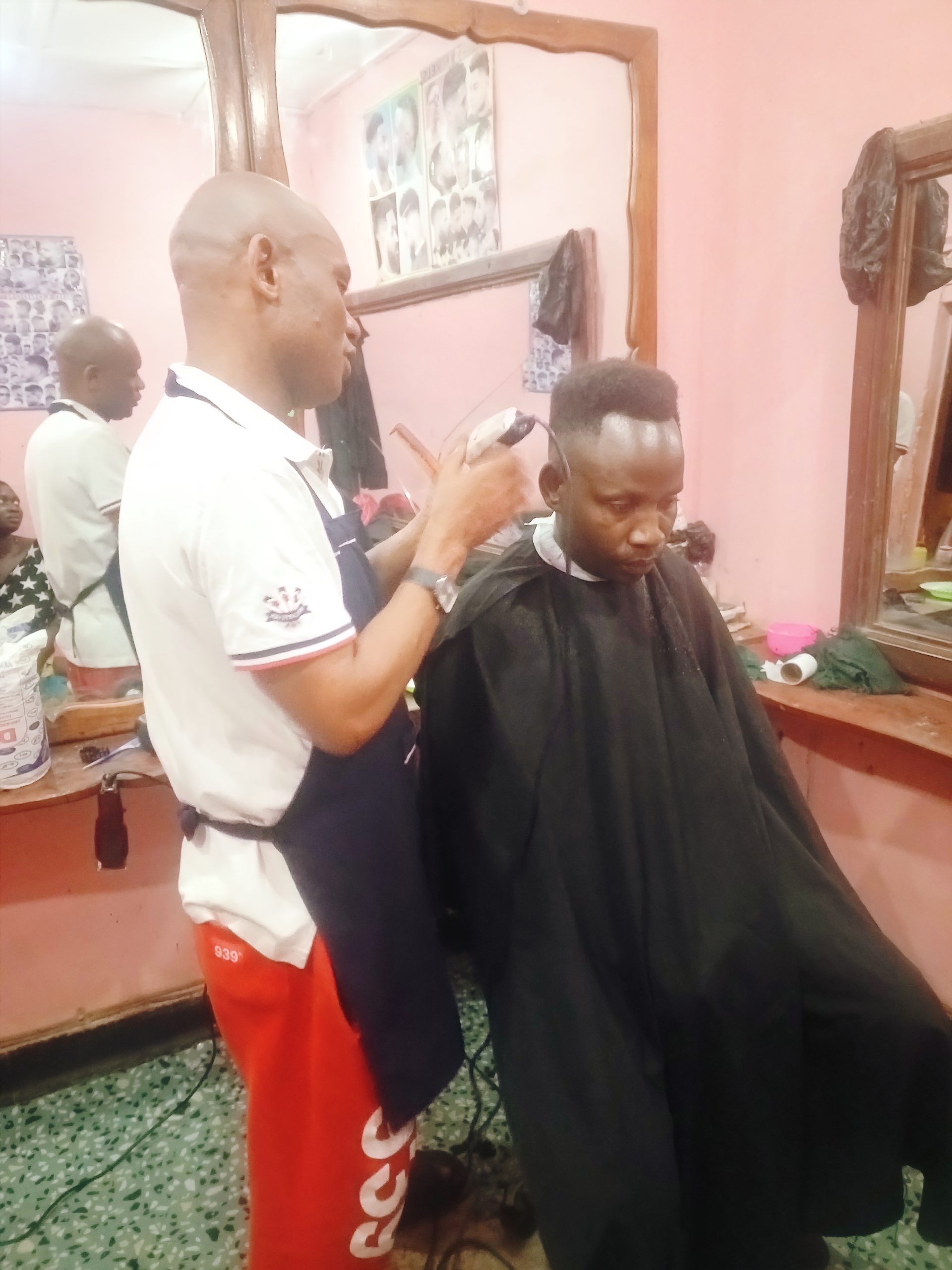In this second episode of Voices from the Ground, I return to Nakivale refugee settlement; not with a survey tool, but with curiosity, time, and a willingness to listen.
What I encountered wasn’t in reports or logframes, but in quiet, unfiltered conversations with refugees. I had returned to Nakivale in Isingiro District, Western Uganda, as part of my routine. But this time, I leaned in more closely. I spent the week immersed in the everyday rhythms of life in the settlement; staying at “Next Level,” a modest refugee-run hostel. I had beer at “Bar Chez Keneddy, ne tombera jamais,” a humble bar serving Congolese dishes. I got a haircut at a refugee-run salon in the New Congo Market, and snacked on beignets; sweet cakes with a Congolese touch; as I moved through the settlement’s sprawling terrain.
Even before arriving, the journey itself reminded me just how far removed the humanitarian experience can be from the actual lives of refugees. I boarded a public taxi from Mbarara, squeezed shoulder-to-shoulder with refugees returning to the settlement. At one point, a passenger sat on my lap due to lack of space. At police checkpoints, our driver would offload passengers to bypass inspection on boda bodas, then pick them up again past the stop. It was clearly a rehearsed tactic to hide how overloaded we were.
Still, we were stopped. But the police didn’t bother to check inside. The driver simply stepped out, walked to the back, handed over a bribe, and we moved on. This ritual; illegal yet normalised; played out like a script. When I later asked a Rwandan refugee about it, he shrugged and said, “You can’t have this rubbish in Rwanda. We say there is freedom in Uganda, but…” He trailed off. He didn’t need to finish.
So no, I didn’t arrive in Nakivale in a Land Cruiser or special hire but in an public taxi. Of course not everyone needs to take that kind of transport, but it does offer perspective. Do we really grasp what refugees endure when we roll into settlements in sleek, donor-branded vehicles? Do the donors who fund them understand how wide the gap has grown?
When I arrived, my friend Josh, a refugee leader and director at Raise Chess Academy, suggested I sleep at the OPM (Office of the Prime Minister) hostel; a logical recommendation, as most NGO workers opt for secure, comfortable lodging. I had stayed there before and understood the appeal. But this time, I chose differently. I gently told Josh that this separation; aid workers living in walled compounds, eating in seclusion, insulating themselves from their surroundings; contributes to the very disconnect that keeps the system stagnant.
Josh was taken aback. He admitted that no one he knew had spoken so plainly about this contradiction. He acknowledged something many avoid: that humanitarian workers, while claiming to serve crisis-affected communities, often shield themselves from the very people they work with. He hadn’t thought about how deep that divide runs.
While there, I visited Last Hope Refugee Association; a refugee-led organisation in Nakivale known for serving sexual minorities. We had deeply candid conversations about the daily challenges they face in a society that can be unwelcoming or worse. Some members shared that they had been targeted with harmful accusations, even blamed for bringing curses. A few even said that members they knew had been attacked or killed – though I cannot independently verify every account, the fear they expressed was real and persistent.
They told me how some had opened small businesses, only to find fellow refugees refusing to associate with them. This hostility, they believe, has been intensified by Uganda’s recent anti-LGBTQ legislation, which has created a climate where discrimination feels emboldened. Interestingly, they noted that not all local authorities are hostile. In fact, some local police and government staff have offered understanding, even protection. In their view, the law was weaponised by political actors, and it has emboldened harmful attitudes among segments of the community. For displaced people already burdened by trauma and loss, it becomes easy to be a scapegoat and in some cases, tragically dangerous.
And yet, Last Hope persists. With support from a flexible grant by the Global Wholebeing Fund, they adapted their plans when inflation made their vocational training center financially unviable. Instead, they started a micro-loan scheme. Members used the capital to open bars, salons, poultry farms, and mobile money kiosks. These small businesses are helping them build a sense of dignity and independence.
They were genuinely thankful for my visit, not because I had any funding in hand, but because I showed up as a human being. I got a haircut in one of their salons. Had a beer in one of their bars. Sat and listened. That meant more than any report or promise.
While in the saloon, the barber told me quietly, “They [NGO workers] may come to take pictures for reports, to raise money for themselves; but they don’t come to get a haircut and listen like this.”
It struck a nerve. How do we really show up when we visit refugee settlements? This isn’t about performative empathy or reckless adventure. But we must admit that many humanitarians operate like visitors in a fortified embassy; driven in, driven out, surrounded by armed guards, eating special food in isolated gardens, while around the refugee settlement, people struggle to survive.
Would we support an aid system that dismantled the refugee camp model altogether; one that let displaced people choose citizenship, live with dignity, and redirected the lion’s share of funding to refugee-led organisations? If not, maybe we’re more committed to the status quo than we think.
Showing up isn’t just physical. It’s relational. It’s economic. It’s political. And sometimes, it’s just as simple; and radical; as getting a haircut and listening to what the barber has to say.

Leave a Reply